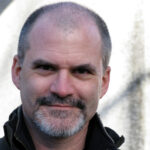 Sigma, σ, is the Greek character we use to represent standard deviation. 6 σ represents the spread of data about the mean. For data with a normal distribution 6 σ includes 99.7% of the data.
Sigma, σ, is the Greek character we use to represent standard deviation. 6 σ represents the spread of data about the mean. For data with a normal distribution 6 σ includes 99.7% of the data.
The 6 σ design approach incorporates knowledge of the variation that will occur within the design such that the design has is unlikely to fail. Continue reading